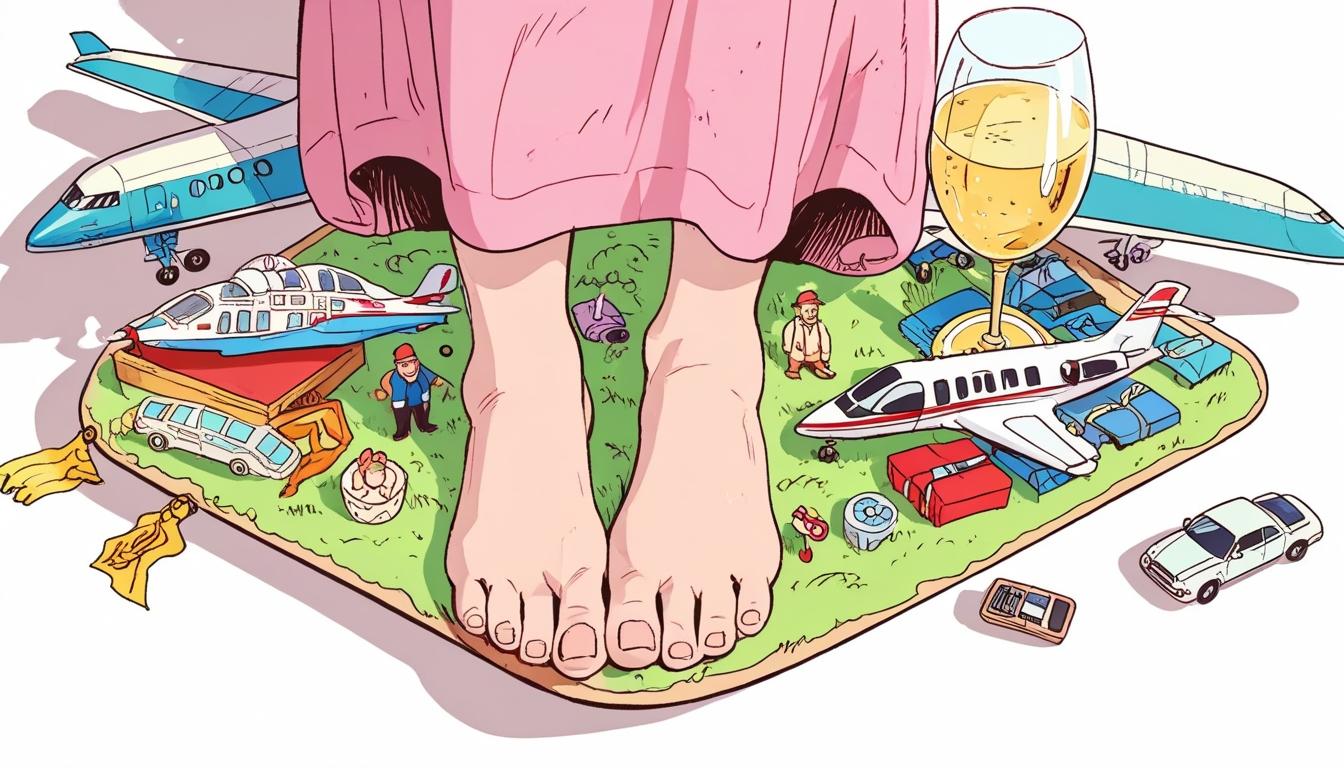Josie Gibson has recently revealed that she was diagnosed with gout, a condition often associated with wealthy historical figures, after filming the Channel 5 travelogue Around The World In First Class. The 40-year-old television presenter underwent a health check before starting her next project, The 1970s Diet, which led to the surprising diagnosis.
Gout is a type of arthritis that causes severe pain and swelling in the big toes, feet, wrists, and ankles. An estimated 1.5 million people in the UK suffer from the condition, and its occurrence is increasing by about four per cent each year. Historically linked to indulgent lifestyles, gout was notorious among figures such as Henry VIII and Benjamin Franklin, who consumed alcohol and red meats high in purines—substances that contribute to the disease.
Gibson reported experiencing pain in her toes during the filming of Around The World In First Class, a series showcasing luxury travel that included twelve first-class flights, private jets, and stays in rooms priced above $20,000 per night in locations like the Middle East and the Caribbean. She said, "I thought gout was only for old men but I have been living quite a lavish life. Before I filmed this show, I caught a lot of flights, I drank a lot of champagne, I ate a lot of rich food and I had little sleep. That's how I ended up getting gout."
Blood tests confirmed her condition, but after returning to a less extravagant diet—drinking more water and reducing champagne intake—Gibson is now gout-free. Reflecting on her dietary changes during The 1970s Diet, where she ate simple meals such as boiled potatoes, liver, and spam, she noted, "I've come from one extreme to the other. I went from living my finest life ever to being brought down to earth with a bang."
Gibson is not the only celebrity to encounter historically significant illnesses once thought to be relics of the past. Robbie Williams revealed in April that he contracted scurvy—a vitamin C deficiency popularly linked to sailors in the 17th century—after using an appetite suppressant and drastically reducing his food intake. Williams, 51, shared with The Mirror, "I'd stopped eating and I wasn't getting nutrients... I was undernourished and lacking in vitamin C, leading to scurvy which I dubbed: 'A 17th-century pirate disease.'" He also discussed his long battle with body dysmorphia, explaining how it affected his perception of his own weight.
Other celebrities have also faced serious conditions typically associated with earlier centuries. Zac Efron contracted a life-threatening bacterial infection, thought to be typhoid, while filming a survival show in Papua New Guinea in 2019. Thanks to urgent medical evacuation to Brisbane, Australia, he recovered and was able to return to the United States for Christmas. The Killing Zac Efron series documented his time deep within remote jungle villages, including the Kamanibit and Pagwi villages.
Musician and TV personality Cheryl experienced severe malaria after a 2010 trip to Tanzania, during which she was critically ill and given a 24-hour prognosis. The illness forced her to slow down and regain weight, fundamentally shifting her priorities. Speaking during her involvement with Sport Relief in 2014, she said, "When I climbed Kilimanjaro for Comic Relief five years ago it was honestly one of the hardest things I've ever done... I didn't for one minute think that only a year later I would get malaria myself and become so ill that at one point I was given 24 hours to live."
Similarly, Hollywood actress Rebel Wilson contracted malaria at age 18 while travelling in Mozambique. She recalled the experience in an interview with Us Weekly, describing waking up in an African bush with "like 100 mosquito bites on my face." Wilson spent two weeks in hospital and acknowledged that she could have died from the disease.
Mia Farrow, aged nine, was afflicted by polio in 1954, and has since become an advocate for vaccination programmes worldwide in her role as a UNICEF Goodwill Ambassador. In reflecting on her own struggle and the development of the polio vaccine, she told the New York Post in 2000, "It was a real struggle to come through it; what I saw will never leave me — in the hospitals and in the public wards for contagious diseases." Due to vaccination efforts, polio is now extremely rare in most parts of the world, including the UK.
More recently, Rhian Sugden disclosed in March that she had contracted quinsy, a bacterial infection of the tonsils often described as a 'Victorian disease' due to its historical prevalence before the age of antibiotics. The 38-year-old lingerie model shared her pain on social media, describing quinsy as "something else" and posting a photo from the hospital as she recovered.
These accounts highlight that diseases often considered relics of the past can still affect people today, including those living modern, often high-profile lives. Whether through travel, lifestyle, or other circumstances, historic illnesses remain present in contemporary health narratives.
Source: Noah Wire Services
